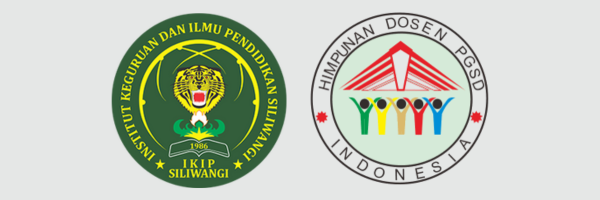Utilization of Smart Whiteboard Media Based on Educational Games to Train Students' Creative Thinking Skills
DOI:
https://doi.org/10.22460/pej.v6i2.3274Abstract
This study aims to develop educational games that use smart whiteboard media, and related devices such as Learning Implementation Plans (RPP), Student Worksheets, and Creative Thinking Test Sheets that are appropriate to be used to practice creative thinking skills of fourth-grade elementary school students. This study uses a 4D development model (define, design, develop, and disseminate), which is limited to the third stage (develop). The use of game-based smart whiteboard media and related devices was then validated by experts and the results obtained that the media was valid and could be used in research. The study was conducted on 24 fourth-grade students of MI Miftahul Ulum with One Group Pretest-Posttest Design. The data collection instrument used was a media validation sheet filled out by three experts, a lesson plan implementation observation sheet, a student activity observation sheet, a creative thinking skills test sheet, and a student response questionnaire sheet. Methods of data analysis were carried out in the form of the media validation analysis, analysis of the implementation of learning activities, analysis of student activities, analysis of creative thinking skills, and analysis of student responses. The results of the research and research discussions can be concluded that the use of smart whiteboard media based on educational games to train students' creative thinking skills that have been developed is valid, practical, and effective.
Keywords:Â smart whiteboard, educational games, creative thinking skills
References
Ardini & Lestariningrum. (2018). Bermain dan Permainan Anak Usia Dini (Sebuah Kajian Teori dan Praktik). Nganjuk: Penerbit Adjie Media Nusantara
Aziz, Rahmat (2018). Teori Riset Praktik Creative Learning. Malang: Edu Litera.
Biaik, Maya, Charles Fadel. (2015). Skills for the 21st Century: What Should Students Learn?. Center for Curriculum Redesign: Boston, Massachusetts.
Borich, G. D. (1994). Observation Skills for Effective Teaching. United States of America: Macmillan Publishing Company.
Daryanto. (2016). Media Pembelajaran: Peranannya Sangat Penting dalam Mencapai Tujuan Pembelajaran. Yogyakarta: Penerbit Gava Media.
De Bono, E. (2007). Revolusi Berpikir. Bandung: PT Mizan Pustaka.
Fanny, Arif Mahya, Siti Partini Suadirman. (2013). Pengembangan Multimedia Interaktif untuk Mata Pelajaran Ilmu Pengetahuan Sosial (IPS) Sekolah Dasar Kelas V. Jurnal Prima Edukasia, Volume 1 Nomor 1.
Gregorcic, Bor. Euginia E. and Gorazd P. (2018). A New Way of Using the Interactive Whiteboard in a High School Physics Classroom: A Case Study.
Hanifah, Wardatul, Slamet Subiyantoro, Muzzazinah. (2019). Creative Thinking Skill in Science Lessons in Elementary Schools. Advance in Social Science, Education and Humanities Research, Vol. 397. 3rd International Conference on Learning Innovation and Quality Education (ICLIQE).
Hijrianti. (2017). Peranan dan Manfaat APE untuk Mendukung Kreativitas Anak Usia Dini. Vol. III No. 2 pp. 59-69
Ismail, Andang. (2006). Education Games (Menjadi Cerdas dan Ceria dengan Permainan Edukatif). Yogyakarta: Pilar Media
Mulyadi. (2004). Bermain dan Kreativitas. Jakarta: Papas Sinar Sinanti.
Nurlaela, Luthfiyah, Euis Ismayati. (2015). Strategi Belajar Berpikir Kreatif. Yogyakarta: Penerbit Ombak.
Nurlaela, dkk. (2019). Strategi Belajar Berpikir Kreatif (Edisi Revisi). Jakarta: Media Guru.
Roy, Jessica. (2013). Elementary Teacher Perception of Teaching Practice that Foster Creative Thinking in Students. Inquiry: The University of Arkansas Undergraduate Research Journal Vol. 14, No. 9.
Samatowa, Usman. (2010). Pembelajaran IPA di Sekolah Dasar. Jakarta: PT Indeks.
Türel, Yalın Kılıç, Tristan E. Johnson. (2012). Teachers’ Belief and Use of Interactive Whiteboards for Teaching and Learning. Journal of Educational Technology & Society, Vol. 15 No. 1, Technology Supported Cognition and Exploratory Learning pp. 281-394.
Sudjana, N. 2013. Penelitian Hasil Proses Belajar Mengajar. Bandung: PT. Remaja Rosdakarya.
Wardani, D. S., Kelana, J. B., & Jojo, Z. M. M. (2021). Communication Skills Profile of Elementary Teacher Education Students in STEM-based Natural Science Online Learning. Profesi Pendidikan Dasar. https://doi.org/10.23917/ppd.v8i2.13848
Wardani, D. S., Wulandari, M. A., Nurfurqon, F. F., & Kurniawati, D. (2021). STEM-INTEGRATED PROJECT-BASED LEARNING (PJBL) MODEL AND LECTURE WITH EXPERIMENTS LEARNING MODEL: WHAT IS THE SCIENTIFIC LITERACY SKILLS OF ELEMENTARY TEACHER EDUCATION STUDENTS IN THESE LEARNING MODELS? Al-Bidayah : Jurnal Pendidikan Dasar Islam. https://doi.org/10.14421/al-bidayah.v13i1.634












